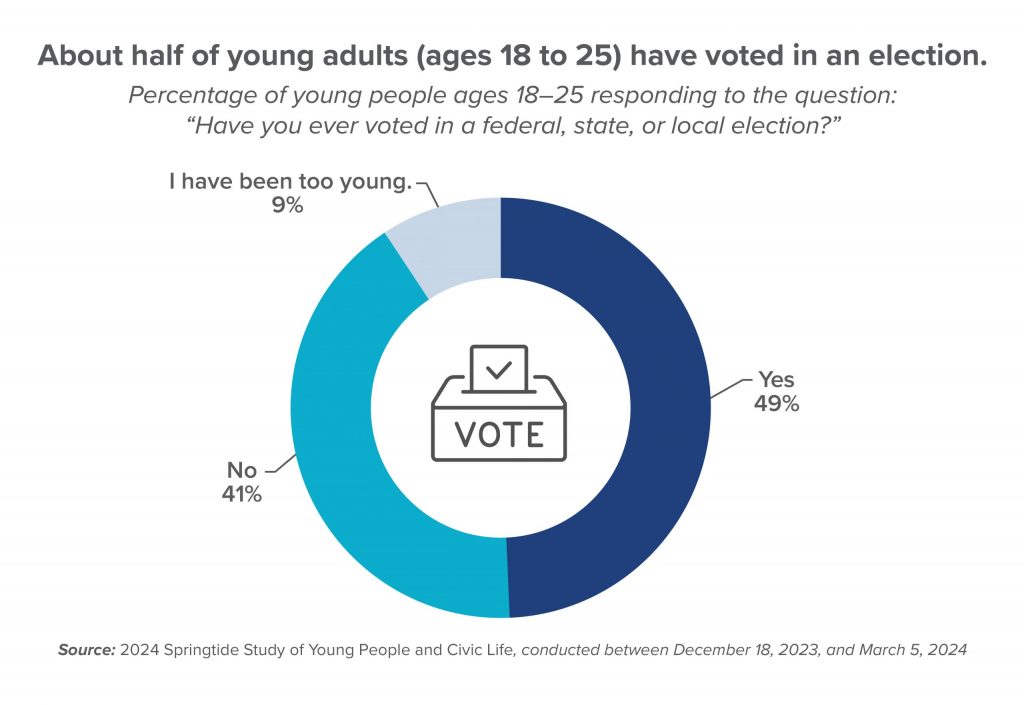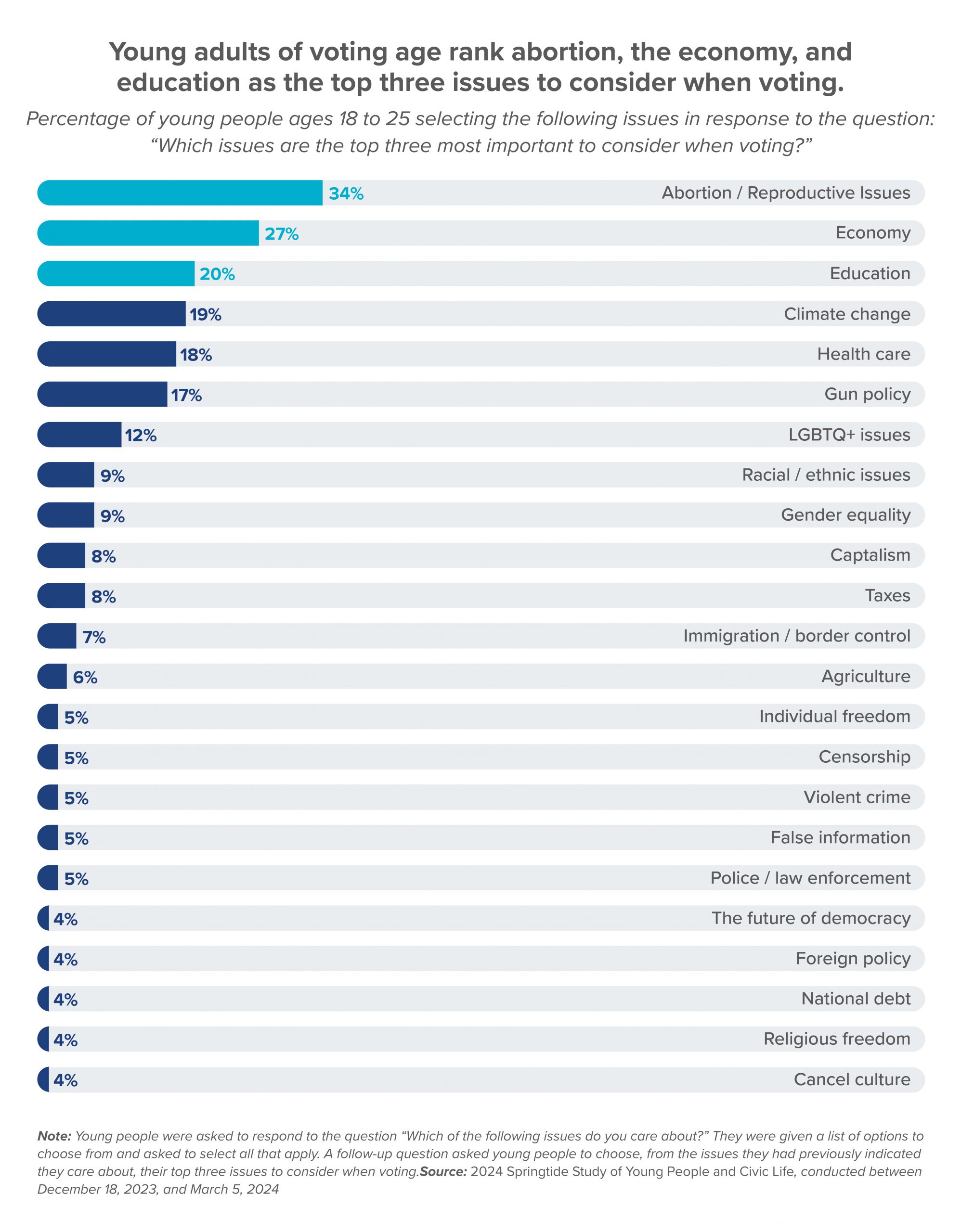
Voting: What Young People Say
Our newest report, Cultivating Care: How & Why Young People Participate in Civic Life, explores young people’s civic lives in the context of care—how they seek and gain knowledge, detangle complex identities from narrow labels, and engage in dialogue and action in ways that feel safe and productive. In surveying thousands of young people ages 13 to 25 and interviewing dozens more, most believe that voting is a fundamental civic responsibility, even in the moments where it feels like one vote makes little difference. Read some of our latest findings on young people and voting below, many of which are excerpted directly from the report.
Forty-nine percent of Gen Z adults (those between the ages of 18 and 25) we surveyed say they have voted in a federal, state, or local election.

According to the young people we interviewed in January and February of this year, voting is important because it is (1) a civic duty, (2) a powerful way to use your voice to affect social change, and (3) a privilege that not everyone has.
To Mae, 21, “Being a citizen means you hold a stake in how the country is going, and so the most fundamental thing would be definitely to vote.” Greg, 23, says that while “we shouldn’t have a system where voting is compulsory, … society runs better when everyone’s politically engaged.” And Reagan, 22, says that voting is a way to “take part in our government,” which is a responsibility for citizens “because, in theory, our government is run by the people.”
Others say voting is important because it’s empowering. Ximena, 17, says: “If it was on a scale of 1 to 10, [voting] is like an 11. If you want your voice to be heard, then you should say it. My history teacher said that if you don’t vote, your voice isn’t heard, which means if you complain about what’s happening in the world, your voice doesn’t matter ’cause you didn’t voice it.”
Many young people believe that not everyone can participate in the electoral system, and to do so is a privilege.
We are very lucky that we even have the ability to vote. There are so many people outside of America that can’t vote. But, also, there are so many people in America—and this is their home country— who can’t vote, either because of being immigrants, or because of unconstitutional voter ID laws, or how so many people with disabilities aren’t able to vote. There [are] so many reasons [why] we should vote, because that is a privilege that we have.
—Allison, 22
Hear directly from young people on politics
To hear more check out this YouTube playlist featuring our Instagram Live conversations on young people’s views on political participation, the connection between religion and politics and what productive political conversations with adults can look like.
Nonetheless, concerns about the effectiveness of voting lead some young people to feel apathetic about going to the polls. When we conducted interviews earlier this year, young people expressed discontent and even disappointment around voting and the slate of potential candidates. Robert, 13, is not yet old enough to vote but plans to when he turns 18. Even so, he says: “I don’t think I will be super, like, ‘Oh wow, I did something great today,’ I think it’ll just be an activity.” Samuel explains that while he personally thinks that “voting is key” and that “people should respect that our generation might feel some political apathy because we’ve, over the course of our lives, seen so little change and care for our generation, and I think a lot of us feel stuck.”
Some feel disillusioned by political candidates and processes they see as unfair, dishonest, or out of touch. Ava, 22, reflects: “Is it important for people to vote? We weren’t even founded on a system where everybody could vote. So, honestly, I don’t know.” Vee, 19, similarly finds himself disenchanted with the political candidates available to him, pushed to choose between unfavorable options He laments: “I don’t want to [vote]. I know I’m supposed to be excited about it I’m supposed to be doing my civic duty and whatever, but it just doesn’t feel right.”
Pressing political and social issues motivate young people to vote. Gen Z young adults of voting age (between the ages of 18 and 25) select abortion / reproductive issues (34%), the economy (27%), and education (20%) as the top three most important issues to consider when voting. While only 13% of young people ages 18 to 25 report having voted in the past 12 months, 49% say that they have voted in at least one federal, state, or local election, and even more (61%) say they plan to vote in the upcoming US presidential election.




